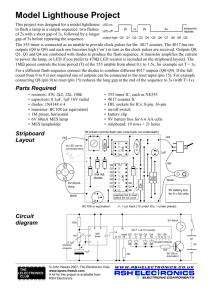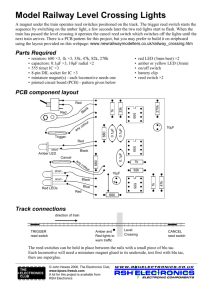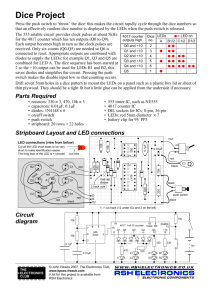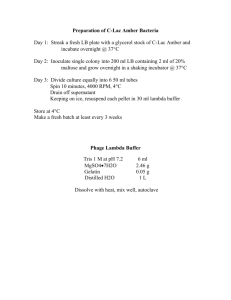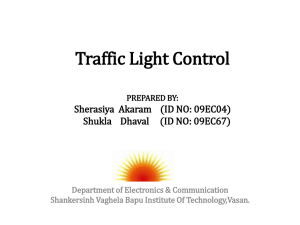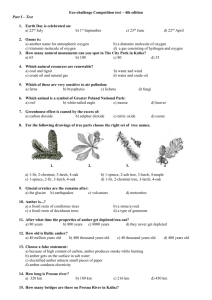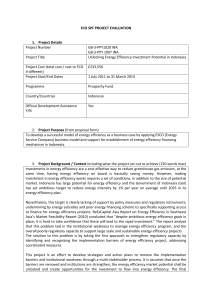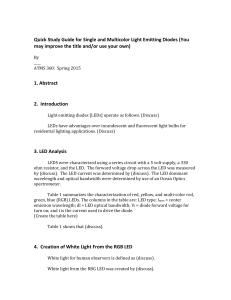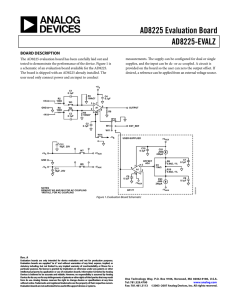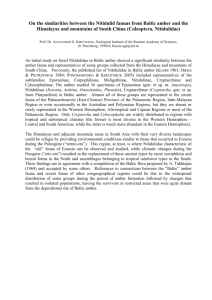Traffic Light Project
advertisement
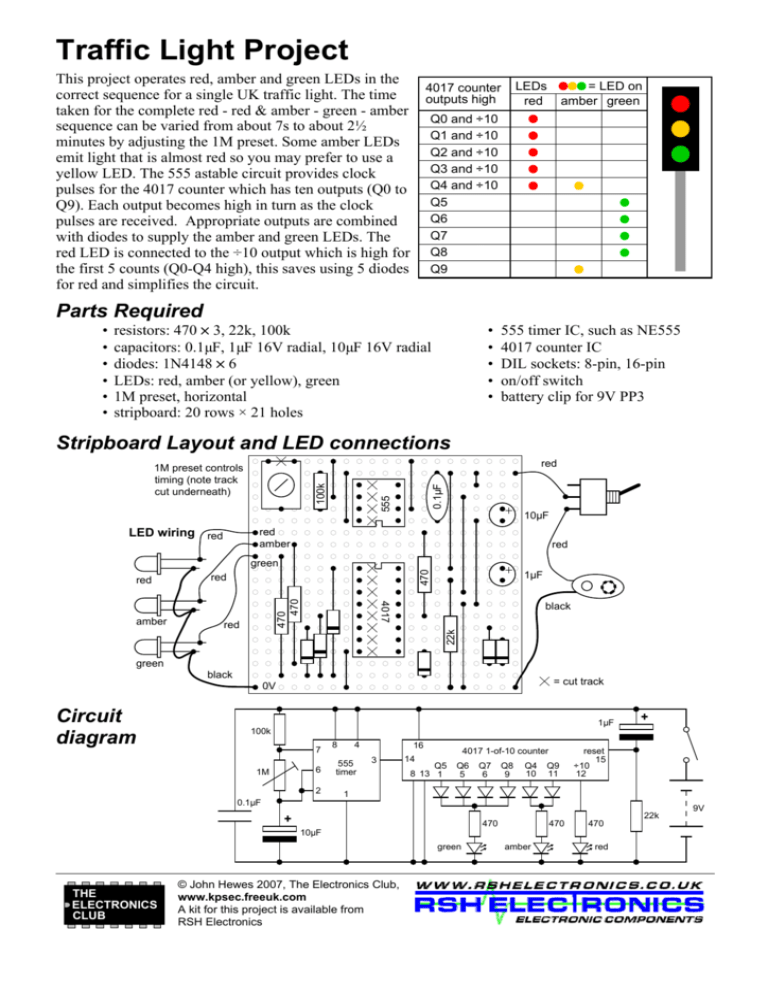
Traffic Light Project This project operates red, amber and green LEDs in the correct sequence for a single UK traffic light. The time taken for the complete red - red & amber - green - amber sequence can be varied from about 7s to about 2½ minutes by adjusting the 1M preset. Some amber LEDs emit light that is almost red so you may prefer to use a yellow LED. The 555 astable circuit provides clock pulses for the 4017 counter which has ten outputs (Q0 to Q9). Each output becomes high in turn as the clock pulses are received. Appropriate outputs are combined with diodes to supply the amber and green LEDs. The red LED is connected to the ÷10 output which is high for the first 5 counts (Q0-Q4 high), this saves using 5 diodes for red and simplifies the circuit. LEDs red 4017 counter outputs high = LED on amber green Q0 and ÷10 Q1 and ÷10 Q2 and ÷10 Q3 and ÷10 Q4 and ÷10 Q5 Q6 Q7 Q8 Q9 Parts Required • • • • • • resistors: 470 × 3, 22k, 100k capacitors: 0.1µF, 1µF 16V radial, 10µF 16V radial diodes: 1N4148 × 6 LEDs: red, amber (or yellow), green 1M preset, horizontal stripboard: 20 rows × 21 holes • • • • • 555 timer IC, such as NE555 4017 counter IC DIL sockets: 8-pin, 16-pin on/off switch battery clip for 9V PP3 Stripboard Layout and LED connections 555 100k 0.1µF red 1M preset controls timing (note track cut underneath) 10µF red amber LED wiring red red 470 470 red black 22k red 1µF 4017 amber 470 green red green black = cut track 0V Circuit diagram 1µF + 100k 7 1M 8 4 6 555 timer 2 1 16 3 14 4017 1-of-10 counter Q5 8 13 1 Q6 5 Q7 6 Q8 9 Q4 10 Q9 11 reset 15 ÷10 12 0.1µF 22k + 470 470 470 10µF green THE ELECTRONICS CLUB © John Hewes 2007, The Electronics Club, www.kpsec.freeuk.com A kit for this project is available from RSH Electronics amber red 9V
